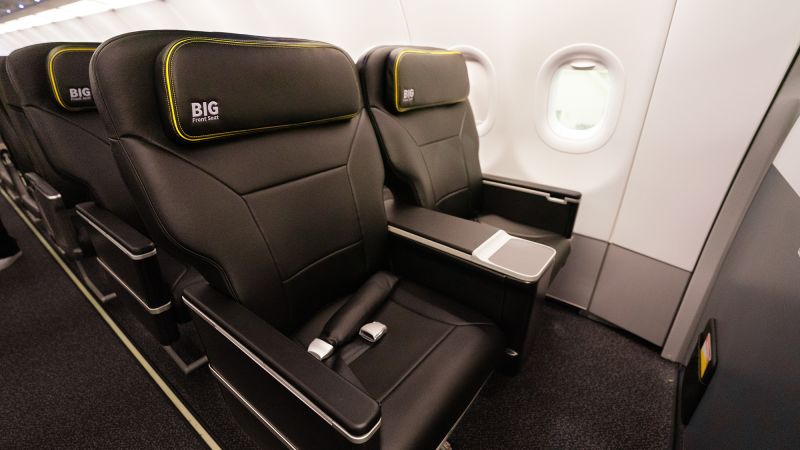Spirit Airlines, known for its ultra-low-cost model, is introducing a new class of tickets called “Go Big” that allows passengers to pay extra for extra-wide seats in the front of the cabin. These seats come with perks such as snacks, drinks, carry-on and checked bags, and streaming access. In the past, passengers had to pay extra for these items even when seated in the larger seats. The new class of tickets also includes priority check-in and boarding, features that were not previously offered by the airline.
In addition to the new business class-like seating, Spirit Airlines is also allowing passengers to pay more for seats in rows where the middle seat will not be sold. This move is a response to the challenges the airline industry has faced in making money selling bargain-priced seats. Spirit’s pricing structure, which allows passengers to choose the cheapest base fare and pay more for extras, has forced major carriers to introduce similar basic economy tiers for no-frills tickets.
Spirit has not had a profitable year since 2019, with occasional profitable quarters but more losses overall. The airline has warned of lower-than-expected revenue and another quarterly loss. In contrast, larger legacy carriers like American, United, and Delta airlines have reported record revenue, largely due to their ability to sell premium seating options such as business and first-class seats and economy plus seats with extra legroom.
The airline industry has seen changes in recent years, with Southwest Airlines announcing plans to end its open seating policy and introduce reserved seating for the first time in its history. Southwest also plans to offer premium extra legroom seating in one third of its rows by 2025. While larger carriers have been able to generate revenue from premium seating options, ultra-low-cost carriers like Spirit have struggled financially in comparison.
Southwest Airlines, once the most profitable airline in the US, has faced financial challenges in recent years and is being pressured by activist investors to improve profitability. Spirit Airlines looked at merging with other carriers to increase competitiveness, but a deal with JetBlue Airways was blocked by a federal judge in January. The airline industry continues to evolve as airlines seek new ways to generate revenue and attract passengers in a competitive market.
The introduction of the new “Go Big” class of tickets and other seating options by Spirit Airlines reflects a shift in the industry towards offering passengers more choices and amenities. As airlines adapt to changing customer preferences and market conditions, the competition among carriers for passengers continues to drive innovation and changes in the way air travel is priced and sold.













